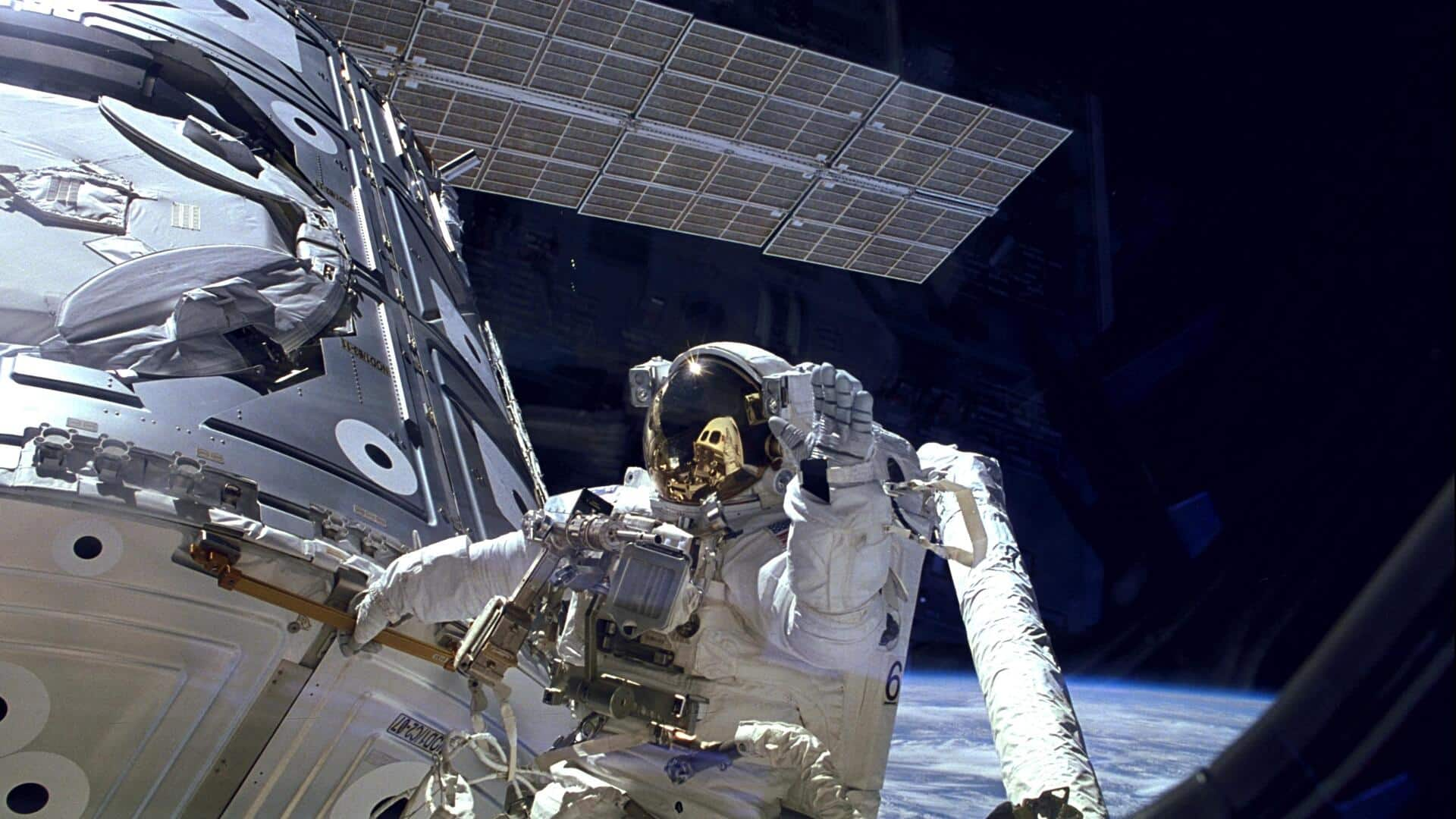
Scientists create 'smart' molecule that could prevent microgravity-induced bone loss
What's the story
A new study, led by the University of California, Los Angeles (UCLA) and the Forsyth Institute in Cambridge, claims that an engineered compound could effectively prevent bone loss in mice aboard the International Space Station (ISS). This breakthrough could help address the long-standing issue of microgravity-induced bone loss in astronauts during long-duration space missions. Additionally, it could offer potential therapy for patients suffering from "musculoskeletal degeneration on Earth" per the official statement.
Details
Decreased mechanical loading under microgravity causes 12x more bone loss
Astronauts in low Earth orbit can experience bone loss of up to 1% per month, posing significant risks to skeletal health and increasing the likelihood of fractures during spaceflight and later. Current strategies to combat bone loss rely on exercise-induced mechanical loading to promote bone growth but the strategy may suit astronauts spending six months in space. The study notes that decreased mechanical loading under microgravity causes bone loss at a rate 12 times greater than what's observed on Earth.
Study
The study involved a protein essential for bone density
For the study, scientists looked at a protein called NELL-like molecule-1 (NELL-1), essential for bone development and maintaining bone density. To increase the therapeutic capacity of NELL-1, the team extended the molecule's half-life and conjugated it to an inert bisphosphonate (BP), creating a "smart" BP-NELL-PEG molecule capable of "pinpointing bone tissues with precision." The teams extensively assessed the efficacy and safety of the "smart" molecule and found it showed "superior specificity for bone tissue without causing observable adverse effects.
Official words
The study holds promise for future space exploration
"Our findings hold tremendous promise for the future of space exploration, particularly for missions involving extended stays in microgravity," said the study's lead corresponding author Chia Soo. "If human studies bear this out, BP-NELL-PEG could be a promising tool to combat bone loss and musculoskeletal deterioration, especially when conventional resistance training is not feasible due to injuries or other incapacitating factors," added co-principal investigator, Kang Ting.